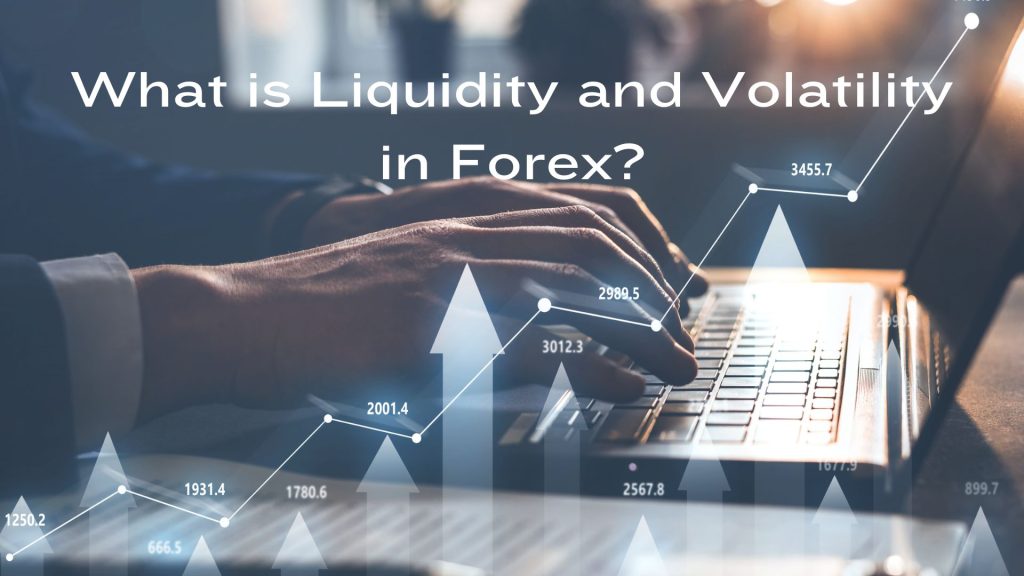
What is Liquidity and Volatility in Forex?
Forex, or foreign exchange, is the largest and most liquid financial market in the world, with trillions of dollars traded daily. In this market, understanding concepts like liquidity and volatility is crucial. These two factors play significant roles in determining the trading environment and influencing trading strategies.
In this article, we will cover what liquidity and volatility mean in the context of forex trading.
What Is Liquidity in Forex Trading?
Liquidity refers to the ease with which an asset can be bought or sold in the market without significantly impacting its price. In the forex market, liquidity is exceptionally high due to its decentralised nature, continuous operation across different time zones, and the vast number of participants including banks, financial institutions, corporations, governments, and individual traders.
What Do You Need to Know About Liquidity?
- Major Currency Pairs: The most liquid currencies are those of countries with stable economies and large trading volumes. These include pairs like EUR/USD, USD/JPY, GBP/USD, and USD/CHF.
- Tight Spreads: Liquidity is often associated with tight bid-ask spreads, which is the difference between the buying (bid) and selling (ask) prices of a currency pair. Liquid pairs tend to have narrower spreads, making trading cost-efficient.
- Market Depth: Liquidity also reflects the market’s depth, which refers to the volume of buy and sell orders at various price levels. High liquidity ensures that large trades can be executed without significantly affecting prices.
- Liquidity Providers: In the forex market, liquidity is facilitated by liquidity providers such as banks, financial institutions, and market makers, who continuously quote bid and ask prices, ensuring smooth trading operations.
Join the global network of professionals and find the ideal trading and liquidity partners now!
What Is Volatility in Forex Trading?
Volatility measures the degree of fluctuations in the price of a currency pair over a specific period. In forex trading, volatility is influenced by various factors including economic releases, geopolitical events, interest rate decisions, and market sentiment.
What Do You Need to Know About Volatility?
- Impact on Trading: Volatility can present both opportunities and risks for forex traders. Higher volatility can lead to greater profit potential but also increases the risk of significant losses.
- Volatility Indicators: Traders often use volatility indicators such as Average True Range (ATR) or Bollinger Bands. They gauge the level of volatility in the market and adjust their trading strategies accordingly.
- News Events: Economic news releases, such as GDP reports, employment data, and central bank announcements, are major drivers of volatility in the forex market. Traders need to stay informed about these events and their potential impact on currency prices.
- Time of Day: Volatility tends to vary throughout the trading day. It changes with peak activity during overlapping trading sessions, such as the London-New York overlap. Traders may adjust their strategies based on the time of day to capitalise on volatile market conditions.
How to Leverage Liquidity and Volatility in Forex?
Understanding the relationship between liquidity and volatility is essential for developing effective trading strategies in the forex market.
In highly liquid and low-volatility conditions, traders can focus on scalping or day trading strategies. aiming to capitalise on small price movements with high-frequency trades.
In contrast, during high volatility, traders can opt for swing or position trading strategies. They seek to ride larger price trends over longer time frames while managing risks accordingly.
Conclusion
Liquidity and volatility are closely intertwined in the forex market, with each exerting a significant influence on the other. By understanding this relationship and adapting their trading strategies accordingly, traders can effectively navigate the forex market.
To learn more about trading platforms, follow us on LinkedIn.






